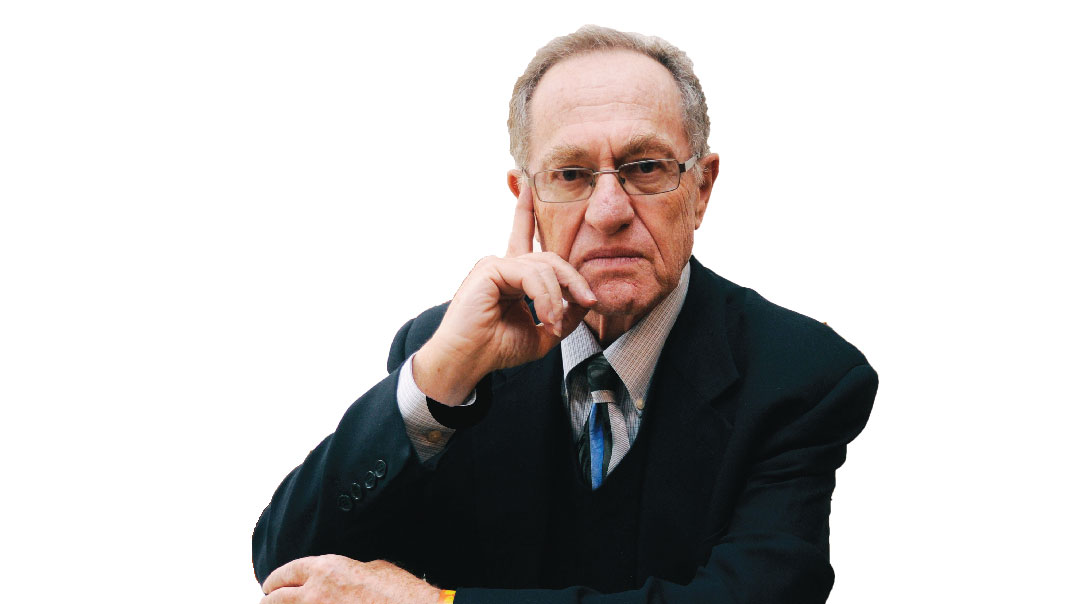For Whom the Bell Tolls

Professor Alan Dershowitz on how the president’s political and legal troubles might follow him into 2020

Photo: AP Images
The impeachment inquiry into President Trump is now a little more than a month old, but it is slowly building momentum and is increasingly ensnarling the president in both legal and political woes.
Every day there are new revelations of possible misconduct, and former advisors are openly critical of the president. Former White House chief of staff John Kelly told Time magazine that he warned Trump his conduct might lead to impeachment, and former national security advisor John Bolton is reportedly in talks with three separate House committees to testify about Trump’s dealings with Ukraine.
The cumulative evidence could bury the president, but even if the various investigations do not end his term (considered unlikely, since a two-thirds majority is required in the Republican-controlled Senate), Trump suddenly confronts a situation where a political cloud hangs over his presidency, much like his first two years in office, when Robert Mueller was compiling his report.
With the impeachment inquiry consuming Washington’s attention, I contacted Professor Alan Dershowitz to talk to him about the formalities of the processes and how the president’s political and legal troubles might follow him into 2020.
Do you think that the Democrats have a real case against President Trump?
No. I think that for an impeachment inquiry to be opened, you need evidence of treason, and there’s no evidence of treason. Bribery — there’s no evidence of bribery. High crimes and misdemeanors — I don’t see any evidence of criminal conduct. I see evidence of very questionable conduct politically, but that’s not an impeachable offense.
How would you define high crimes and misdemeanors?
Well, first, it has to be a crime. Second, it has to be a crime of governance. So, for example, [President Bill] Clinton’s crime was a low crime, not a high crime. A high crime would be something that involves a crime committed as part of the president’s responsibilities. For example, [President Richard] Nixon committed high crimes because he told his subordinates to lie to the FBI, and he destroyed evidence, and he paid hush money to potential witnesses. But something involving a person’s private life or his partisan political life would not constitute a high crime or misdemeanor in my view. So the word “high” has a meaning.
When you look at Trump’s situation now compared to when the inquiry was opened a few weeks ago, is his situation worse or better?
I think politically it has gotten worse, and legally it hasn’t changed. Politically, I think the president lost a lot of political support over his decision to remove troops from Syria. And I think he lost some of his political support for his phone call with the president of Ukraine. But neither of those are impeachable offenses. So, technically, he’s in the same position, but politically he is weaker.
When you look at Democrats like Rep. Adam Schiff, who is conducting one of the impeachment inquiries against the president, do you think his interest is more about corruption or more about politics?
It is totally political. If the shoe were on the other foot, if this were a Democrat president, these people would not be seeking impeachment for comparable conduct. So it fails what I call “the shoe on the other foot” test.
How do you think it is going to end?
I think it may end possibly with impeachment by the House, but an acquittal by the Senate, unless there’s evidence for actual crimes, which I don’t see. But I think at this point, the worst thing that could happen [for the Democrats] would be impeachment by the House and acquittal by the Senate.
Do you think that it’s going to rally up Trump’s base?
I think it will. I think it will backfire on the Democrats the same way Clinton impeachment backfired on the Republicans.
(Originally featured in Mishpacha, Issue 783)
Oops! We could not locate your form.













